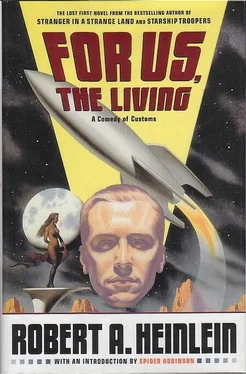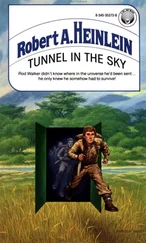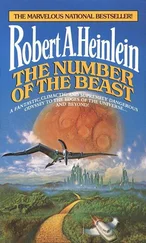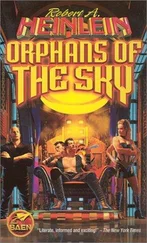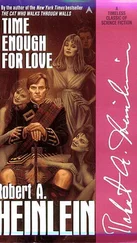Robert Heinlein - For Us, The Living
Здесь есть возможность читать онлайн «Robert Heinlein - For Us, The Living» весь текст электронной книги совершенно бесплатно (целиком полную версию без сокращений). В некоторых случаях можно слушать аудио, скачать через торрент в формате fb2 и присутствует краткое содержание. Жанр: Фантастика и фэнтези, на английском языке. Описание произведения, (предисловие) а так же отзывы посетителей доступны на портале библиотеки ЛибКат.
- Название:For Us, The Living
- Автор:
- Жанр:
- Год:неизвестен
- ISBN:нет данных
- Рейтинг книги:3 / 5. Голосов: 1
-
Избранное:Добавить в избранное
- Отзывы:
-
Ваша оценка:
- 60
- 1
- 2
- 3
- 4
- 5
For Us, The Living: краткое содержание, описание и аннотация
Предлагаем к чтению аннотацию, описание, краткое содержание или предисловие (зависит от того, что написал сам автор книги «For Us, The Living»). Если вы не нашли необходимую информацию о книге — напишите в комментариях, мы постараемся отыскать её.
For Us, The Living — читать онлайн бесплатно полную книгу (весь текст) целиком
Ниже представлен текст книги, разбитый по страницам. Система сохранения места последней прочитанной страницы, позволяет с удобством читать онлайн бесплатно книгу «For Us, The Living», без необходимости каждый раз заново искать на чём Вы остановились. Поставьте закладку, и сможете в любой момент перейти на страницу, на которой закончили чтение.
Интервал:
Закладка:
A siren howled mournfully from outside the building. Joe moved toward the door. "Come along if you want to see it." They followed him back through the corridor, through the entrance hall and up a spiral staircase which gave into a small observation room. On the side toward the field was a wide shallow window of amber glass. Several persons who were lined up along this window made room for them. Joe spoke to one of the spectators. "How soon do they start?"
"Any minute now. There goes Vivian." Perry looked down and saw a small figure, bunchy in coveralls, climb a ladder to a manhole in the top of a stubby metal shape. The figure hesitated halfway in and turned its helmeted head toward the building. Perry thought he could detect the flash of a smile. An arm waved and the figure disappeared. The manhole cover closed into place from the inside, made a quarter turn and stopped. For a moment all was still in the room and nothing moved on the field. Perry could hear Olga's quick breathing at his ear. Then a little burst of violet flame showed from the stern of the test rocket. Somebody said "There she goes!" and the tension relaxed. The flame shot out again, lightened in color and became a blinding white as solid to the eye as white-hot metal. It fanned a trifle and made a myriad little green sparks where it licked the desert soil. A buzz of conversation spread around the room. "Pretty neat, what?"—"Yeah, she's got it this time."—"Watch it fade. That'ud be clean kinetic in vacuo."—Then charged, the main jet darkened, turned purple and quit. Smaller jets around the waist of the craft lighted one after another, and a nose jet blazed out for an instant. More comment came from around them.—"Pretty as a picture, one-two-three."—"Yeah, but I still like precession. Those fractional controls are too complicated."—"It looks nice though, doesn't it."—The smaller jets cut out and the stern jet cut in again, passing quickly from violet to white. It held steady for several minutes, then trembled and Perry thought that he detected a faint shadow on the under side. The whole flame turned a deep purple and split into two parts. He heard a shout of "Down!" and someone jerked savagely at his arm, unbalancing him. He fell across Olga as a white glare like photographer's flashlight temporarily blinded him. A dumb rumble, a short grinding shock, and then silence. He stumbled to his knees and blinked his eyes. Joe was beside him, already rising. They hurried to the window. Before him still lay the rocket but it had lurched awkwardly toward them and a split had opened for several feet near the stern jet. A cloud of yellowish oily smoke partially obscured the scene. Joe turned and hurried down the stairs. The other spectators were gone. Perry had not noticed when or how. He stared again at the sight, trying to interpret it, when Olga's voice sounded beside him.
"Whatever happened, Perry?"
"I don't know yet. Something went wrong."
"That pretty little redhead—Was she hurt?"
"I can't tell. I don't think so. The rocket doesn't look much damaged."
"Let's go down."
They went back down to the reception room and waited in unease for someone to show up. Presently Joe appeared and Perry caught his eye. "Oh yes, you folks. I'd forgotten you." He stopped by them, apparently annoyed and uneasy. Perry questioned him.
"What happened?"
"Nobody knows yet. Either fuel or the nozzles."
"Anyone hurt?"
"Only the operator."
"Killed?"
"They haven't said so yet. She was burned to a crisp and her right leg's gone. Say, I don't want to be rude but I'm awful busy. Will you excuse me?"
"Oh, of course! Sorry!" And he was gone.
Olga took Perry's arm. "Let's get out of here, please, Perry."
"Right." Neither spoke again until they were back in the sky car.
XII
For the next several days Perry reveled in his new-found freedom. He made a number of trips purely for the pleasure of being out and free. Sometimes one or both of the girls accompanied him, more often he went alone. He made a practice of telling Olga or someone in authority where he was going and when he expected to return, but met with no objection to any of his plans. His trips were varied. By now he had practically complete familiarity with the customs of the country and could get around even in a metropolis without arousing comment. He spent several days in San Francisco just looking around and getting acquainted. He dropped in at Berkeley and looked up Master Cathcart, who appeared glad to see him and showed him around the University. Perry was struck by the un-collegiate quality of the place. There seemed to be few students and little of the ant hill activity that characterized the academic institutions of his day. He asked Cathcart what the enrollment was. Cathcart answered, "About fifty thousand." Perry commented that it must be vacation time. The older man said, no, but that few students were actually in residence at Berkeley. He explained that they made a practice of actually being present only when doing laboratory work, inasmuch as the lecture method had been superseded by the stereoscopic record, such as Perry had used. On the other hand there were close personal relationships between teachers and pupils, as most of the direct instruction was of the seminar rather than the classroom variety. Instruction was characterized by discussion groups and guidance in study rather than the cut-and-dried cram-and-exam methods of 1939.
At this time Cathcart was preparing to leave for a trip to Washington to hear the closing debates of the session of Congress. This was primarily a vacation as he could have heard them as well or better in his home and studied the records at his leisure. But, as he told Perry, he liked to browse around the sessions at Washington and gossip with the officials in order to get the smell of the place. He felt that it helped him when interpreting the current scene to others.
He learned that Perry had not yet been to Washington and invited him to come along. Perry explained somewhat diffidently that he was not entirely a free agent. However a call to Master Hedrick cleared that difficulty and Perry found himself headed for the Bay Rocket Port.
This was Perry's first trip by rocket. He spent the three hours as busy as a small boy with two ice cream cones. A transparent bulkhead separated the passengers' seats from the navigation compartment. Perry placed himself in the first row of seats and tried to figure out the technique of the controls. In place of a stick the principal controls seemed to be a double bank of keys arranged above and below a flange that projected from under the instrument board. Perry asked Cathcart the reason for this peculiar arrangement, but the historian admitted that he had taken it for granted. Cathcart rang for the stewardess and held a short conference with her. She looked dubious but entered the navigation room, and got the ear of one of the pilots, who glanced back through the bulkhead and met Perry's eyes. Then he said something to the stewardess, who nodded and re-entered the passenger compartment. She stopped by Cathcart and reported:
"The Skipper says your friend can ride in the inspector's seat if he's strapped in and keeps quiet during maneuvering."
Perry arose, his face radiant, thanked the young woman and turned to Cathcart. "Sure you don't mind?"
"Not at all. I'd like to catch a nap."
The stewardess let him into the navigation room, and strapped him into a chair just behind and about ten inches higher than the pilot's and navigator's seats. The skipper gave him a curt nod and turned away. Perry followed his glance, saw the field lights turn red, then a light ahead showed green in double flashes. The skipper reached out and pinched a pair of control buttons between thumb and forefinger. A buzzer sounded and a transparency flashed, 'PASENJERS STRAP IN'. Perry felt his own safety belt. The pilot pinched another pair of buttons, then several more in rapid succession. Perry felt heavy and a cloud of white smoke blotted out the view ports. It cleared away almost immediately, and the ground appeared far below. San Francisco vanished beneath them. The pilot's hands moved nervously among the controls. Perry watched the numbers click past on the altigraph, two thousand—three—five—nine—thirteen—up and up. At twenty thousand meters the pilot leveled off and accelerated, faster and faster, until seventeen hundred kilometers per hour was reached. The light in the car had taken on an unreal quality, like the glares and sharp shadows of a welder's arc. Outside the sky was a deep purple and stars shown clearly and without twinkling. Just ahead he saw the sickle of Leo beginning to rise. He twisted around in his seat and attempted to see the sun, but it was obscured by the stern of the ship. He was forced to content himself with imagining what the solar prominences and spots might be like. He recalled the warning printed on his ticket: 'DANJER! OBTAN DARK GLASES FROM STUARDES BEFORE VUING SON' and he had neglected to obtain dark glasses from the stewardess. Below the ground flowed past in plastic miniature, each detail sharp. It looked remarkably like the illuminated strip map that unrolled on the instrument board. A glowing red dot floated on the surface of the map. Perry recognized this as a dead reckoner of some sort and wondered how the trick was done. Air speed? Hardly. Earth induction? Possible but difficult, especially in latitude made good. Radio? More likely, but still a clever trick.
Читать дальшеИнтервал:
Закладка:
Похожие книги на «For Us, The Living»
Представляем Вашему вниманию похожие книги на «For Us, The Living» списком для выбора. Мы отобрали схожую по названию и смыслу литературу в надежде предоставить читателям больше вариантов отыскать новые, интересные, ещё непрочитанные произведения.
Обсуждение, отзывы о книге «For Us, The Living» и просто собственные мнения читателей. Оставьте ваши комментарии, напишите, что Вы думаете о произведении, его смысле или главных героях. Укажите что конкретно понравилось, а что нет, и почему Вы так считаете.
